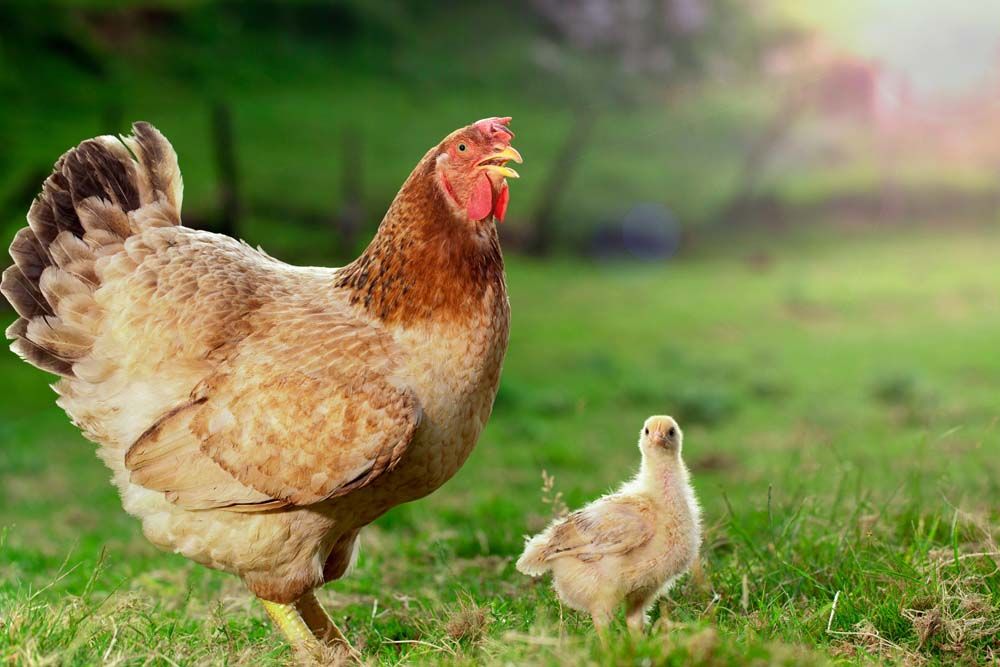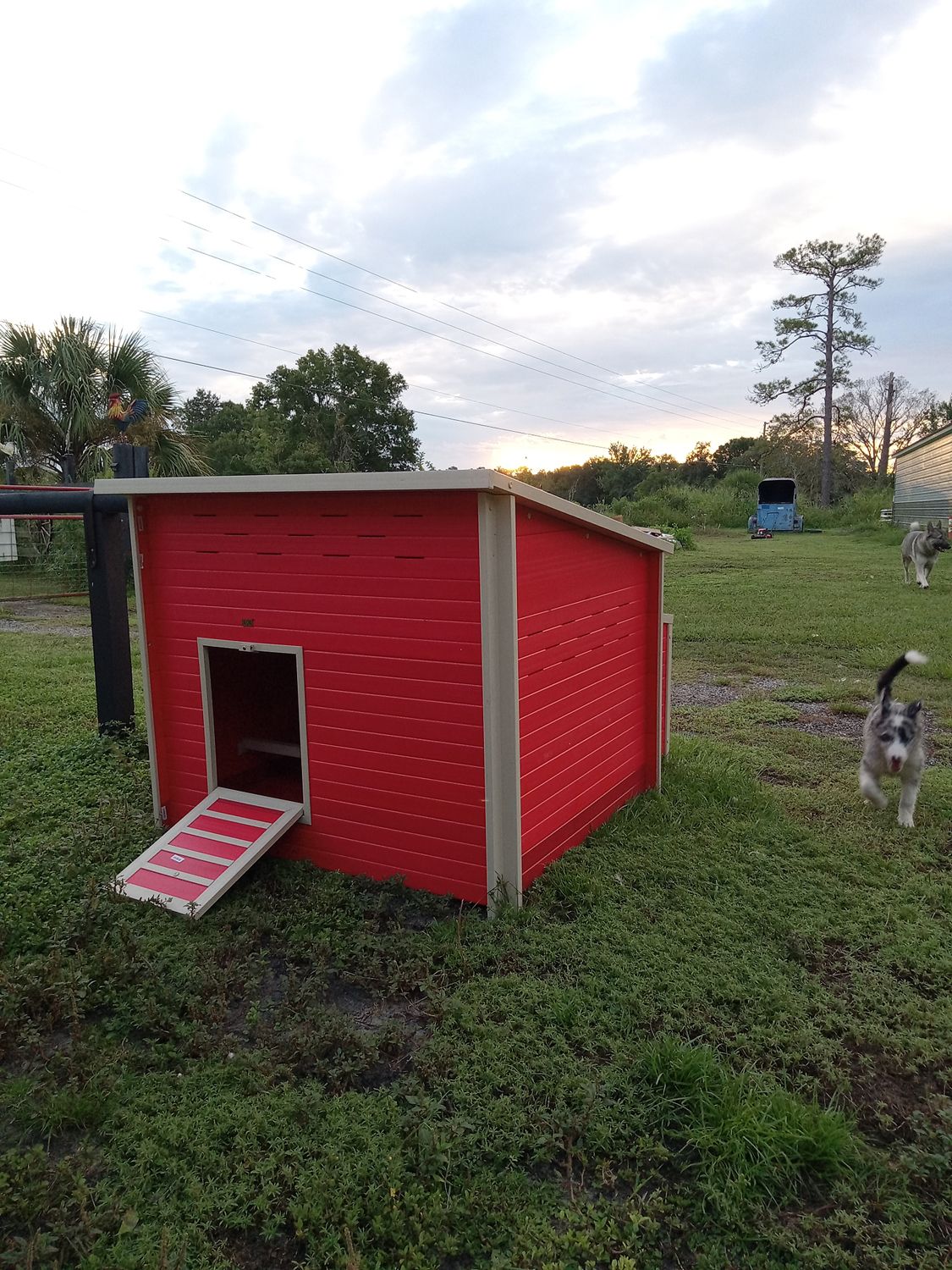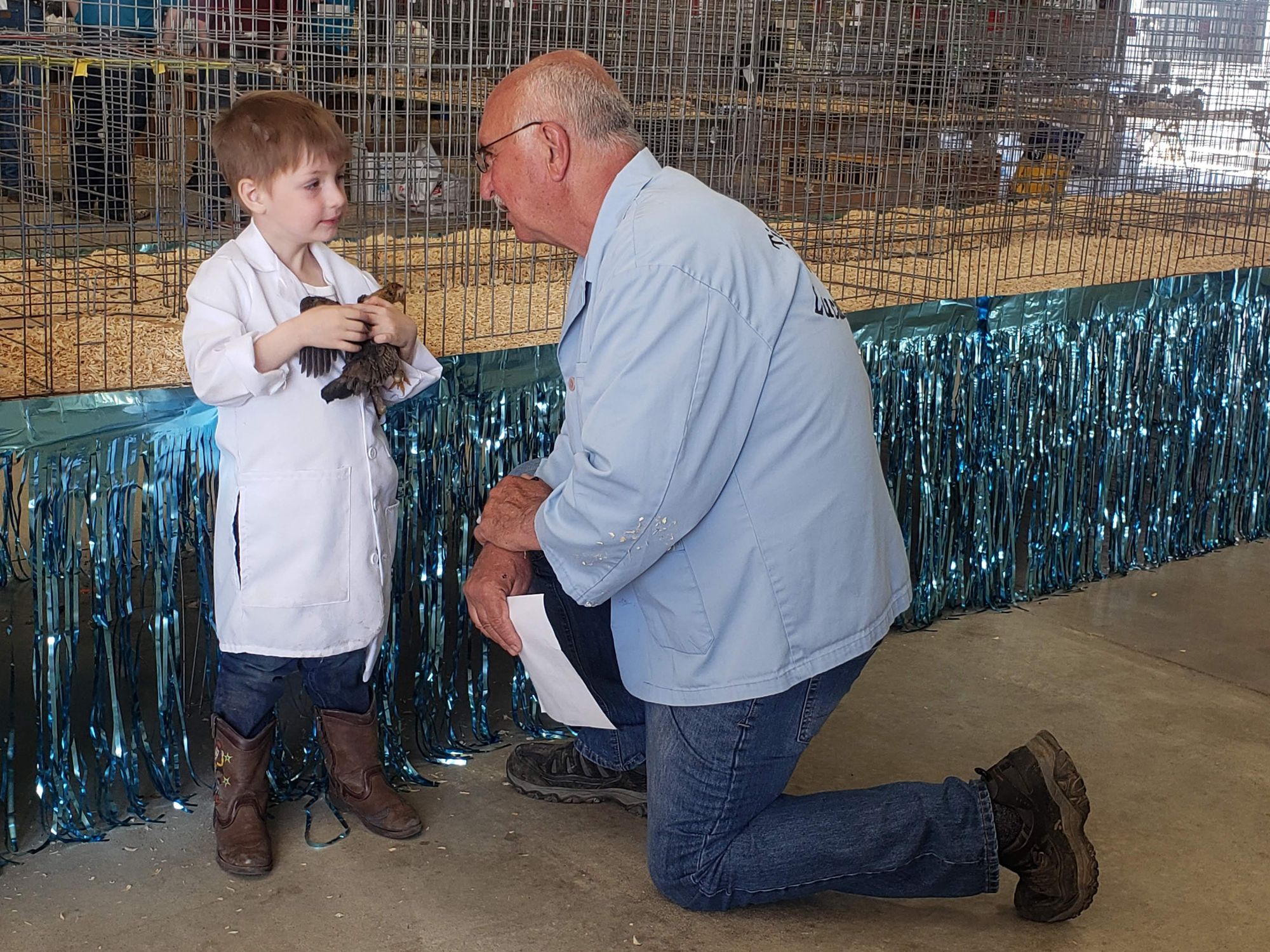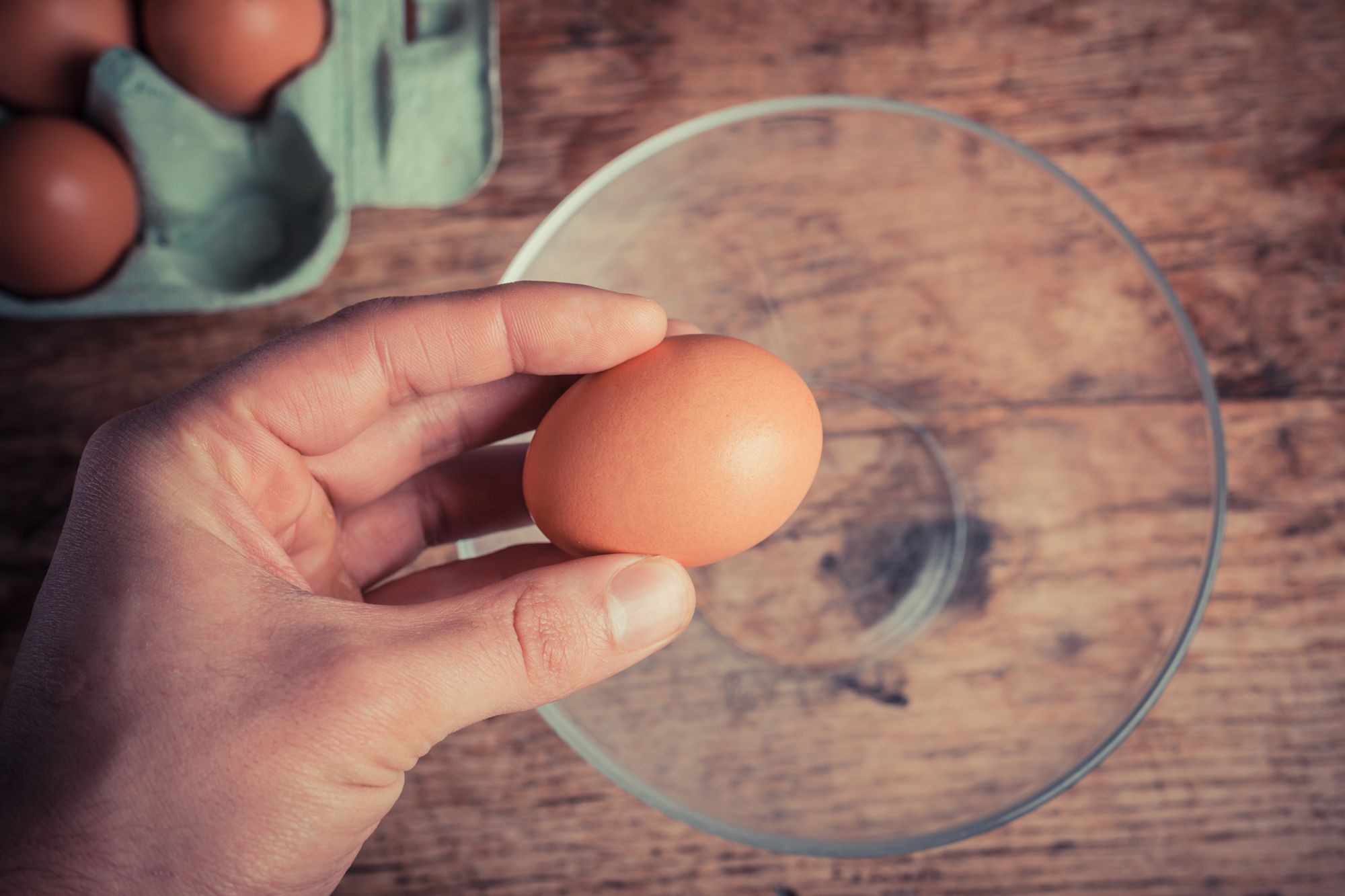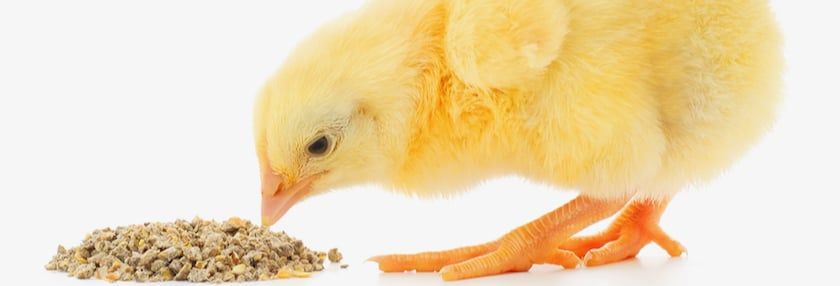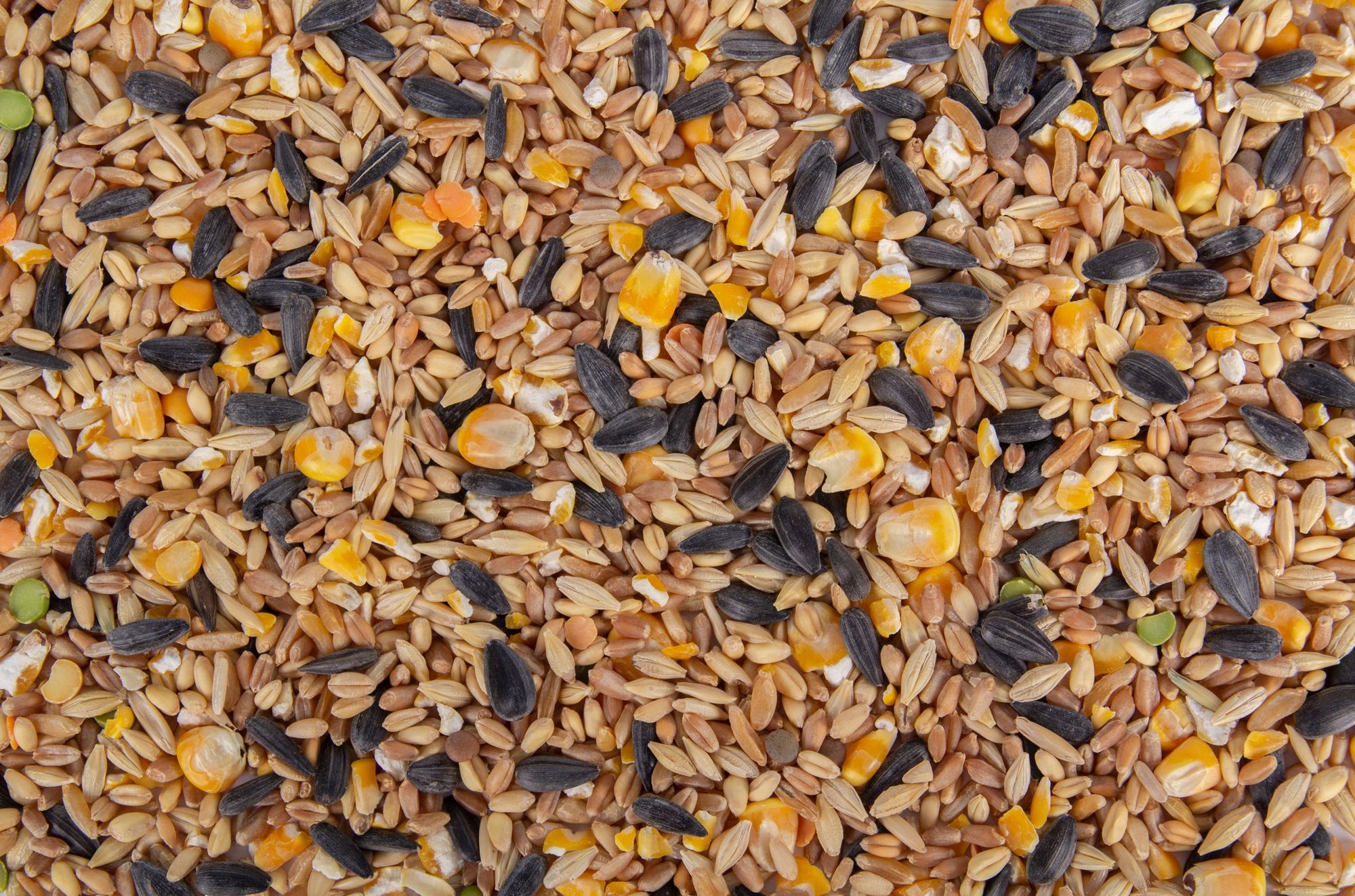Six Chicken Coop Fixes for Winter
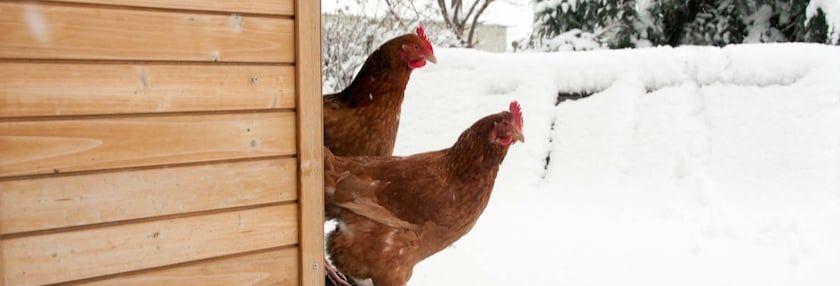

Winter care for small flocks
As winter arrives, small flock owners can take some easy steps to winterize their coops and keep their flocks safe, healthy, and happy during cold winter months. Here are six things to look for.
Ventilation
As cooler weather prevails, owners may close the houses up to keep the birds warm. Unfortunately, this limits ventilation. Ventilation in small flock houses is extremely important, though:
- Removal of excess heat
- Removal of moisture from the house
- Removal of gases produced by the litter
- Providing fresh air to your flock.
During winter months flock owners have to balance maximizing ventilation to remove moisture while not losing the warm air.
Practicing “minimum ventilation” techniques, small amounts of cold air can enter the coop, and be warmed in the house, without significantly impacting the temperature in the house. This continued ventilation still allows for air to absorb moisture and before it is exhausted along with harmful gases.
To best achieve this without creating a draft, air should be directed toward the roof of the house. Air that drops can cause drafts resulting in the birds becoming chilled, increasing stress, and health issues.
Avoiding drafts
Drafts not only lead to chilled birds but can also increase energy costs for owners heating their chicken coops.
Remember, birds generally do not need external heat sources and will naturally adapt to cold temperatures.
Preventing drafts in the shelter of the coop is a way to aid your flock’s natural ability to stay warm. In addition to ensuring proper ventilation while avoiding drafts, owners should also check their coops for any structure damage to the coop that could create drafts—repairing these should be a part of annual coop winterizing.
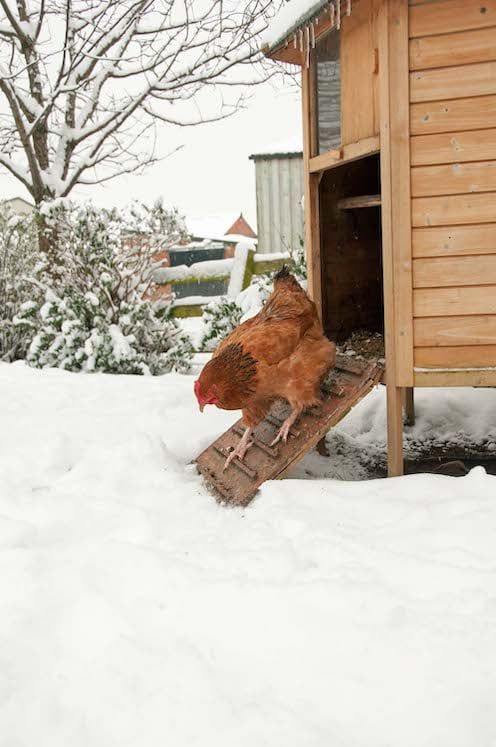
Moisture control
With no or minimal ventilation, moisture can become trapped in the house, causing excess humidity and condensation…which may lead to wet litter or cause animals to actually feel colder.
Excess moisture can appear as water on the walls, windows, or ceiling. This can drop down on the birds and the bedding, resulting in growth of bacteria or mold. This excessive moisture can also lead to wet litter, cause ammonia levels to increase.
During snowy or wet weather, pay attention to your litter to ensure birds are not bringing too much moisture back into the house with them.
Insulation can help keep birds warm and save on energy costs (if you are adding heat) but houses that are too “tight” can result in no air exchange and lead to excess moisture accumulation.
Ammonia control
Ammonia, a result of decomposing bird droppings by bacteria, is harmful to people and birds.
Exposure to ammonia can decrease the bird’s immune system efficiency and irritate their eyes and cause inflammation of air sacs, lungs and trachea. This damage causes the birds to have difficulty breathing and severely increases the stress levels of birds.
Because people tend to “button up” their coops more tightly in the winter, and birds spend more time in their coops during extremely cold months, ammonia control becomes extremely important. There are many steps that can be taken to control ammonia.
One we already discussed, ventilation, aids in removing ammonia from the barn and bringing in fresh air. Keeping litter dry also decreases ammonia in coops. Litter management is critical to reduce ammonia build up, including using the appropriate absorbent litter and removing saturated litter and replacing it with clean litter frequently.
Natural litter additives can help bind ammonia and moisture and keep litter fresher longer.
Coop Recuperate is an example of a coop refresher that uses essential oils, diatomaceous earth and yucca schidigera to reduce odor, absorb moisture, and lengthen bedding life.
Frostbite prevention
Birds exposed to extremely cold temperatures can be damaged by frostbite, and the key is
to keep birds dry. This not only protects them from getting chilled but is also one step that protects them from frostbite. Feathers are birds' natural insulation but when they become wet, they lose their effectiveness. The head parts of birds (including their combs and wattles) and their feet are the most susceptible to frostbite.
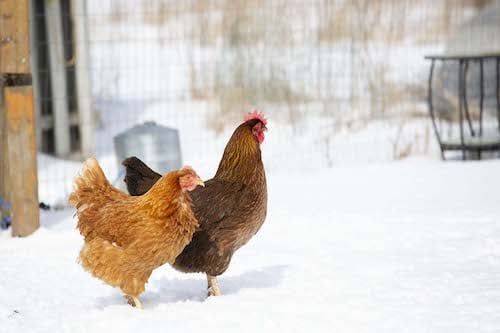
Birds that stay outside too long or are forced to stand or walk in the snow for extended periods are the most likely candidates for frostbite. Poultry breeds with large combs and wattles are more susceptible to frostbite.
If you live in areas that experience extremely cold winters, consider breeds that have small combs and wattles. However, all birds are susceptible to frostbite, regardless of breed, and steps should be taken for all flocks to protect them from frostbite.
Petroleum jelly is commonly advised to protect combs, but opinions vary greatly on frostbite protection efficacy. The reasoning behind using petroleum jelly is that it can prevent accumulation of water on the combs and wattle when the birds are drinking or standing outside.
Petroleum jelly may provide some insulation from the cold as its freezing point is lower than that of body tissues. If you are going to use this as a method of protection, it should only be used in addition to other measures and should only be applied to dry body tissues using dry hands.
If you believe your birds have experienced frostbite, contact your veterinarian for steps to take to prevent further damage.
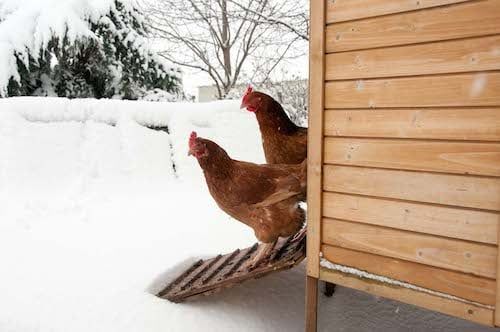
Fresh water
Fresh water availability is just as critical in the cold of winter as it is in the heat of summer. Provide fresh water daily and on extremely cold days, check periodically throughout the day to ensure the water has not frozen over. Explore methods of preventing water from freezing, like using black waterers that absorb sunlight.
Ensuring your birds have adequate water is essential for their bodies natural functions including their metabolism to keep them warm and immune system to keep them healthy.
Using these steps to winterize your coop and protect your flock can help your birds stay healthy happy and safe throughout the winter.
Tags:Feed4Thought

Chicken Whisperer is part of the Catalyst Communications Network publication family.


